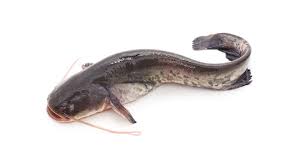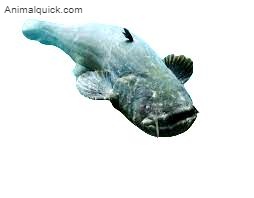Catfish a very famous species all around the world.
Have You Ever Wondered:
- Do Fishes Drink Air?
- Do Fish Get Thirsty For Air?
- How Do Fish Get Air From Water?
Let’s find it out!
Do Fishes Drink Air? No, fish don’t drink air.
They get the oxygen they need from water through their gills, not by drinking air like humans do.
Do Fishes Drink Air?
No, fishes do not drink air like humans drink water.
Fishes get oxygen from the water through their gills, which are special organs for breathing underwater.
They don’t drink air in the way we drink liquids; instead, they absorb the dissolved oxygen present in the water to breathe and survive.
Do Fish Drink Water or Air?
Fish don’t drink water or air in the same way humans drink liquids.
Fish extract oxygen from water using their gills. They filter the oxygen from the water as it passes over their gill membranes, allowing them to breathe underwater.
Unlike humans, fish don’t need to drink water to survive. They get the oxygen they need directly from the water they live in.
Do Fish Get Thirsty For Air?
No, fish don’t feel thirsty for air like humans do for water.
Humans and some animals need to drink water to stay hydrated, but fish don’t need to “drink” air.
Instead, they get the oxygen they need to breathe directly from the water through their gills.
Fish are built to extract oxygen from the water, so they don’t have a craving for air like land animals have a thirst for water.
Their bodies are adapted to living in water, and they don’t have the same need for air that we have for water.
How Do Fishes Drink Water?
Fish don’t actually “drink” water in the way humans do.
Instead, they get the water they need through their mouths for various reasons, such as facilitating respiration and maintaining bodily functions.
Fish use their mouths to take in water, and it flows over their gills, where oxygen is extracted from the water and carbon dioxide is released.
This process is essential for their breathing and overall survival.
Unlike mammals, which drink water to stay hydrated, fish get the necessary water intake indirectly through their environment while they extract oxygen for respiration.
The primary focus for fish is on extracting oxygen rather than drinking water for hydration.
How Do Fish Get Air From Water?

Fish get oxygen from water through a specialized breathing process using their gills.
Here’s a simplified explanation:
- Mouth: Fish open their mouths, allowing water to flow in.
- Gills: Inside the fish’s gills, there are thin filaments covered in tiny structures called lamellae. These lamellae provide a large surface area for the exchange of gases.
- Oxygen Exchange: As water passes over the gill filaments, oxygen dissolved in the water moves across the thin walls of the lamellae and into the fish’s bloodstream.
- Carbon Dioxide Release: At the same time, carbon dioxide from the fish’s bloodstream moves out through the gill membranes into the water.
Why Do Fish Need Water If They Breathe Air?
It’s a common misconception; that most fish don’t breathe air like mammals do.
Fish use special organs known as gills to extract oxygen from water.
Gills enable them to extract dissolved oxygen from the water and release carbon dioxide, allowing them to breathe underwater.
While some fish species can gulp air at the water’s surface and extract oxygen from it using a modified swim bladder, the majority of fish rely on extracting oxygen directly from the water through their gills.
Therefore, water is essential for their respiratory process, and they need it to survive.
What Fish Don’t Need Air?
Fish species that do not need air are gouramis, anabantoids, and catfish.
These fish have a specialized organ called a labyrinth organ.
- Gouramis: Certain species of gouramis, such as the betta fish, have a labyrinth organ and can breathe air at the water’s surface.
- Anabantoids: This group includes fish like gouramis and labyrinth fish such as the betta and paradise fish.
- Catfish: Some catfish, like the walking catfish, can gulp air at the water’s surface.
Why Are My Fish Drinking Air?
Your fish might drink water because of the issues with the water quality or conditions in your aquarium.
Here are some reasons why your fish might show this behavior:
- Low Oxygen Levels: In some cases, fish may gulp air if the oxygen levels in the water are low. This behavior helps them access additional oxygen from the air. It could be due to poor water circulation.
- High Ammonia or Nitrite Levels: Elevated levels of ammonia or nitrites in the water can be harmful to fish. Gulping air may be a response to stress caused by poor water quality.
- High Water Temperature: Warmer water holds less dissolved oxygen, which may lead to fish surfacing to gulp air. Ensure your aquarium is maintained at an appropriate temperature for your fish species.
- Overstocking: Too many fish in a limited space can lead to increased waste production and lower oxygen levels. Consider the size of your tank and the number of fish it can support.
- Disease or Stress: Fish may gulp air if they are stressed or sick. Check for signs of disease, unusual behavior, or any visible abnormalities in your fish.
How Do Fish Get Oxygen?
Fish get oxygen through gills and by breathing air at the water’s surface.
1. Gills
The majority of fish have gills, which are specialized respiratory organs.
Here’s how gill respiration works:
- Fish open their mouths, allowing water to flow over their gills.
- Inside the gills, thin filaments with lamellae provide a large surface area.
- Oxygen in the water diffuses across the thin gill membranes into the fish’s bloodstream.
- Carbon dioxide from the fish’s bloodstream moves out through the gill membranes into the water.
- The interchange of gases enables the fish to draw oxygen from the surrounding water.
2. Air Breathing
Some fish, such as certain species of gouramis, catfish, and lungfish, can breathe air directly.
These fish have a specialized respiratory organ, such as a labyrinth organ or modified swim bladder, allowing them to extract oxygen from air at the water’s surface.
Do Fish Need Oxygen to Survive?
Yes, fish need oxygen to survive.
Oxygen is essential for the process of respiration, where fish take in oxygen and release carbon dioxide.
Unlike mammals, which have lungs, fish extract oxygen from water through specialized organs called gills.
Also, read:
- Can Catfish Eat Goldfish Food?
- Can Catfish Live With Goldfish?
- Do Catfish Have Teeth?
- What Do Catfish Eat?
- Why Are Blue Catfish a Problem?
Sources: iowadnr
FAQs
Do fish drink water or just breathe it?
Fish breathe dissolved oxygen in water through gills, don’t drink it.
What do fish drink in the ocean?
Fish absorb moisture needed from seawater, and don’t require additional drinking.
Do tropical fish need air bubbles?
Tropical fish utilize dissolved air in water and don’t directly breathe bubbles.
Do fish drink seawater?
Marine fish absorb water through gills/skin and extract needed minerals/moisture.
Do freshwater fish drink water?
Most freshwater fish absorb required moisture through gills and skin, not drinking.
Do Fish Need Air?
Yes, fish need air to survive, but they extract it from the water through their gills instead of their lungs.
What Does Fish Drink?
Fish do not drink water like humans do. Instead, they get water through their gills as they swim.

I love animals & want to know more about different creatures & sharing their stories with everyone. From my childhood, I’ve been exploring forests & watching animals in their homes.
Now, I write about my adventures & all the amazing things I learned. My blogs are easy to understand & make you want to know more about animals. I teach about why animals are important & why we should take care of them.
